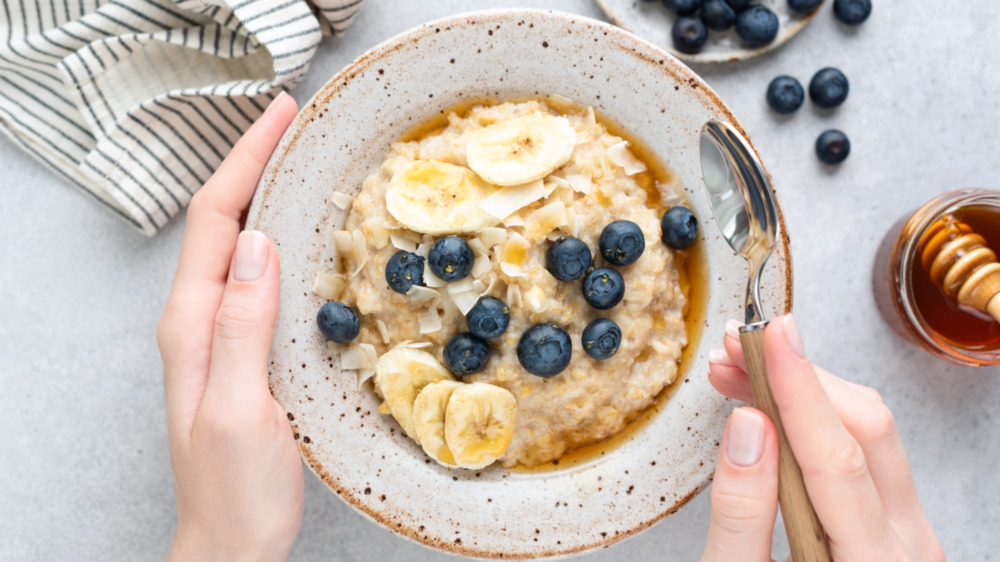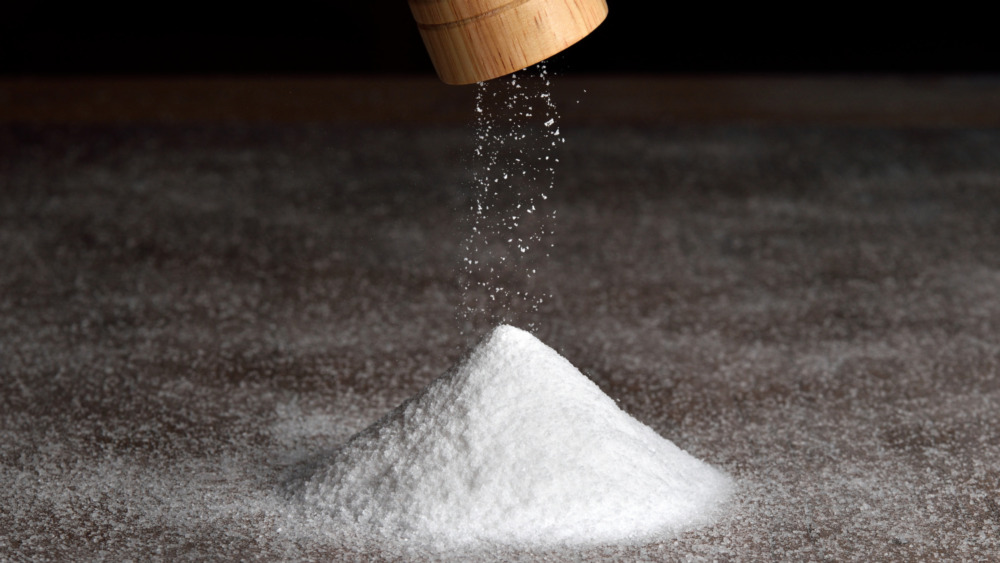Why You Should Always Add Salt To Your Oatmeal
While we may consider oatmeal a rather straightforward meal to make, a subgenre of articles informing you of the mistakes you have committed would beg to differ. Among these articles are ones from Prevention, Bon Appétit, and Kitchn, which all explain that not adding salt deprives you of the fulfilling breakfast that is oatmeal. Specifically, as Prevention stresses, you should add the salt at the beginning as that emphasizes the oat's natural flavors, as opposed to adding it as an afterthought that only makes your bowl taste salty.
Such salting is really basic culinary advice. Cook's Illustrated conducted an experiment in which they produced two sets of roast carrots and beef stew. In one, they salted the ingredients in the beginning and the in the other they left salting to the very end. In both cases, the flavor was enhanced when salt was introduced at the beginning. The explanation they gave for this was that it takes time for salt to work its way through the ingredients, so an earlier salting provides more time for it to bring out more flavor.
Don't worry about that source of sodium
Yes, too much of any ingredient can be unhealthy for you, and that can be especially true when it comes to salt. Even the American Heart Association claims that the average American consumes more than 1,000 milligrams above the upper recommendation of 2,300 milligrams of sodium per day.
While not adding salt to one's daily oatmeal may seem like an easy solution to this, the truth is that the amount of salt we actively add to food pales in comparison to the amount in the food itself. NPR reported in 2016 that the massive quantities of sodium we do consume come from the processed foods that are filled with salt. Companies have started working towards lower sodium products, but we have not reached a point where processed foods can be considered healthy. The upshot of that is depending on the oats you use, the salt you add to them will be a lot lower than the salt found in, for example, a slice of toasted white bread (via NPR).

